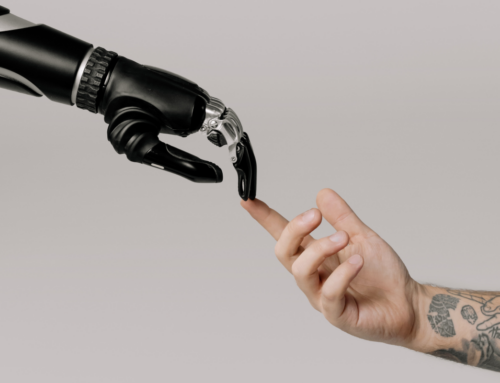
A question that everyone is wondering these days is the potential for Artificial Intelligence (AI) to replace traditional research practices. Will AI become the vanguard of understanding user behaviors and preferences, rendering human-led UX research obsolete?
The Paradigm Shift in UX Research
Artificial Intelligence has taken center stage in transforming various industries, and UX research is no exception. AI-powered tools and algorithms offer the promise of rapid data collection, analysis, and pattern recognition at an unprecedented scale. This shift has led to contemplation about the potential ramifications for the role of human researchers in understanding user experiences.
The emergence of AI in UX research raises pertinent questions about the nature of insights AI can provide, its limitations, and the potential for a complementary partnership between AI and human researchers.
The Strengths of AI in UX Research
AI brings an arsenal of strengths to the realm of UX research. It can swiftly analyze vast amounts of data, identify intricate patterns, and even predict user behaviors with remarkable accuracy. Natural Language Processing (NLP) algorithms can decode sentiments from user feedback, while machine learning models can uncover hidden correlations that might elude human researchers.
Furthermore, AI’s tireless nature enables it to conduct repetitive tasks, such as categorizing data or generating heatmaps, with unwavering precision. This allows human researchers to focus on the creative and strategic aspects of research, driving innovation and crafting impactful user experiences.
The Intrinsic Value of Human Touch
While AI holds immense potential, it must be acknowledged that it lacks the intrinsic human touch that is quintessential in UX research. The art of active listening, empathetic engagement, and intuitive interpretation of user feedback are realms where human researchers excel.
UX research is not just about data points; it’s about understanding the emotional undercurrents that influence user behavior. The human touch is irreplaceable in capturing nuanced insights, deciphering the “why” behind user actions, and empathizing with the intricate tapestry of user experiences.
A Symbiotic Relationship – AI and Human Collaboration
Rather than a battle for supremacy, the future of UX research lies in a harmonious dance between AI and human researchers. AI can serve as a powerful ally, augmenting human capabilities and expediting certain aspects of research. It can sift through colossal data sets, identify trends, and provide preliminary insights that set the stage for deeper human analysis.
Human researchers, in turn, bring the art of interpretation, emotional understanding, and context-driven insights to the table. They refine AI-generated insights, ask probing questions, and provide the much-needed qualitative layer that enriches the understanding of user experiences.
The Road Ahead – Embracing a Hybrid Future
As AI continues to evolve, the future of UX research is poised to be a hybrid landscape where AI and human researchers coexist, each contributing their unique strengths. AI can handle the heavy lifting of data processing and preliminary analysis, freeing human researchers to delve into the depths of user motivations, cultural nuances, and emotional resonances. The path forward lies in embracing a mindset of collaboration, where AI is harnessed as a tool that enhances and amplifies human capabilities rather than replaces them.



